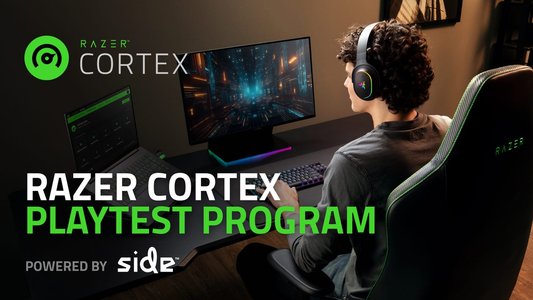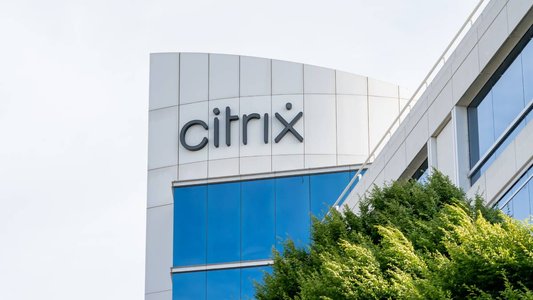Side and Razer have announced a new playtest tool that uses Side's proprietary AI technology, which aims to analyze data to ‛improve quality assurance results' and reduce playtesting costs.
On paper, the workflow of the tool, named Razer Cortex: Playtest Program—Powered by Side, goes like this: a Razer Cortex user, which is the company‛s PC launcher app, can sign an NDA and receive a download key for a game in development. Cortex then "tracks in-game activity and performance" while collecting "player sentiment".
After completing a required play time and submitting feedback, the user earns Razer Silver, a digital currency that can be exchanged for rewards via the app. Meanwhile, Side's proprietary AI "de-duplicates and consolidates the data," which is then validated by quality assurance teams (QA). The companies claim the tool will be an instance of "human-in-the-loop" AI.
The goal for the app is to provide information to QA workers at Side from large playtests, which is aimed to help them catch bugs that "could have potentially flown under the radar in a lab setting." An example of this, according to the announcement, is that if a playtest comes back with multiple reports of a crash in the same section, Side‛s testers know to start looking for a bug.
When asked about the difference in involving players who aren't exactly trained in playtesting or fit a specific profile, Side's chief technology officer, Dr. Harlan Beverly, said the differences in experience and other factors are "negated through the volume of testers we are talking about participating in this program." In addition, Beverly said that the tool "isn't there to replace lab standard playtesting," instead offering a "new type of playtest" to evaluate the experience of people who don't have the top-performing PC and internet connection usually available in a lab environment.
"The development of this tool reflects Side's commitment to infuse technology with human ingenuity," continues the announcement. "Providing playtest reports of this caliber to human QA teams wouldn’t be possible without the company’s significant investment in AI-enabled gaming services solutions."
In the announcement, Beverly claimed that the tool will lead to "more testers and more playtest hours at the same or lower cost" for developers who enroll to use the tool. When asked for an example, the CTO said that during the team's market research, Side found numerous companies who offer playtesting services, one of them quoting "a cost of $1.2 million for a 100,000-person playtest to last 30 minutes." Beverly said the program "would easily be able to reduce that by 80 percent."
Meanwhile, Quyen Quach, vice president of software at Razer, called the tool a "cost-effective way" for developers to run playtests at scale. The companies claim that around 100,000 users could take part in the tests. "By integrating Side's solution into Razer Cortex, we simplify build distribution, enable targeted player selection, and support structured data collection," Quach said. "Developers can target player pools based on gameplay behaviour, experience, and eventually, broader audience insights. This could also enable player-led localization testing in the future."
The companies claim this will be an instance of 'human-in-the-loop' AI
Side, primarily a co-development studio, has been working on AI-powered services for some time now. Almost a year ago to the day, the company acquired Ghostpunch Games for $13 million. At the same, Side said that Ghostpunch's vast experience could be combined with its own "deep QA knowledge" to offer AI-based QA automation and other services to clients in the future.
"Additional synergies can be seen through the combination of PTW's AI-based art technology and Ghostpunch's art integration capabilities, which will bring new generative art integrated technology offerings to the games industry," read a press release at the time. PTW refers to Side's previous name before a rebranding in March of this year.
In last week's announcement, Side said that "building AI into our workflows is critical to keeping both our clients and our team ahead." Referring to QA teams specifically, the company said that there are usually "5-6 people" working in a fully secure environment for most AAA titles. (Without taking into account how QA is often outsourced). The tool's goal, then, is to gather data from people who are "playing the game authentically for entertainment purposes," as opposed to QA folks who are "attempting to 'break' the game" by focusing their time on key moments and areas that players are most likely to interact with.
Regarding the "human-in-the-loop" term for the AI, which is present in the press release for the announcement, Beverly said the company doesn't "use any playtester data to train the AI," and neither Side nor Razer retains the data, with the solution being done in compliance with GDPR and other regulations on a country-by-country basis.
"Instead, during the setup phase, we give the AI context about the game itself, which helps guide the AI to better understand and analyse playtester feedback," the CTO said. Regarding accuracy in detecting and removing duplicate data, Beverly said that tests in Side's sandbox project were "98 percent accurate on duplication detection."
Elsewhere, Side has continued doing acquisitions and opening new studios. In July, the company partnered with Savvy Games Group, which is wholly owned by Saudi Arabia's state-backed Public Investment Fund, to open a studio in Riyadh. This constant expansion hasn't been without layoffs, however—the company laid off 45 workers in January 2024, and "less than" 10 employees were also confirmed to be caught in job cuts last month.







































